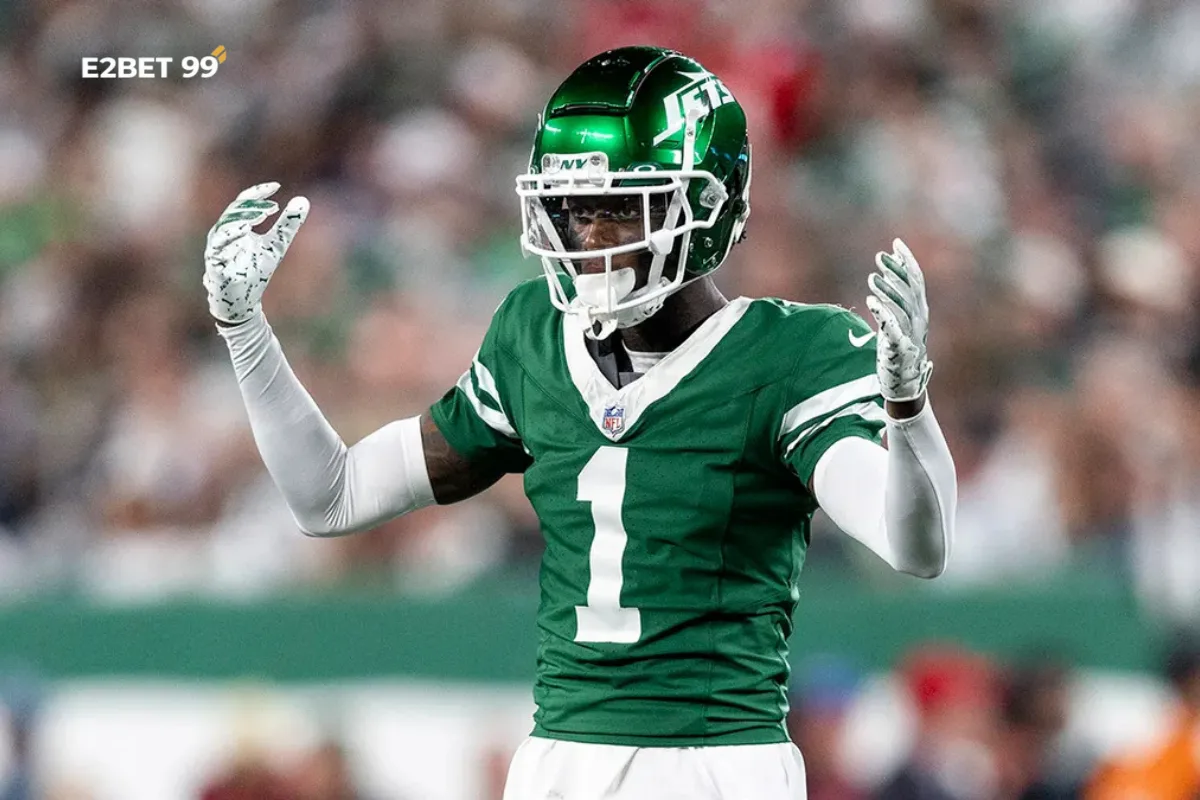A New Era in NFL Defensive Contracts
Sauce Gardner’s recent contract extension with the New York Jets has sent shockwaves through the NFL defensive pay landscape. This record-breaking cornerback deal, valued at $30 million annually, sets a new benchmark for elite cornerback contracts and highlights the ongoing defensive salary escalation in the league. As teams navigate the complexities of NFL salary cap management, Gardner’s deal serves as a key example of the shifting cornerback market and the growing value placed on defensive players.
The Details Behind Sauce Gardner’s Contract
What Makes This Deal Stand Out?
Gardner’s contract stands out due to its guaranteed NFL money and incentive structures, which reflect his status as one of the highest-paid defensive players in the NFL. The deal not only rewards his on-field performance but also takes into account his market value, highlighting how NFL player contracts now incorporate more sophisticated bonus and guarantee components.
Impact on Jets Salary Cap and Team Building
The Jets’ investment in Gardner shows their commitment to building a strong defensive core. However, such a high-value contract poses challenges for the Jets’ salary cap calculations, forcing the team to carefully balance spending across positions. This move demonstrates the strategic decisions NFL teams must make in salary cap management, particularly when locking down star players.

How Sauce Gardner’s Deal Compares to Other Defensive Contracts
NFL Defensive Contract History and Trends
Historically, defensive players, particularly cornerbacks, have received varying levels of compensation. Gardner’s deal reflects a significant jump in cornerback salary comparisons, signalling a new era where defensive backs command top-tier pay. This trend aligns with broader NFL salary trends over time, emphasising the value of defensive players in team strategy.
Cornerback Salary Comparison: Where Does Gardner Rank?
Gardner now ranks among the top cornerbacks in the NFL in terms of salary, joining the ranks of previous record holders. His deal surpasses many recent rookie contract extensions and challenges the salary benchmarks set by defensive stars in recent years. This shift reflects changing attitudes toward the cornerback role in NFL defensive strategies.
Why Are NFL Teams Paying More for Defensive Backs?
Defensive Player Market Dynamics
The increase in guaranteed money and contract length, typical of elite defenders, illustrates the evolving NFL defensive market. With offences becoming more dynamic, teams recognise the importance of a lockdown cornerback to disrupt passing games, fueling the defensive pay race.
The Role of Defensive Performance Metrics
Performance metrics play a crucial role in contract negotiations. Players like Gardner showcase exceptional defensive stats leaderboards, which translate directly into higher market value and endorsements, further boosting their contract potential.
The Contract Negotiation Process and Salary Cap Challenges
How NFL Contracts Are Negotiated
Negotiating contracts in the NFL requires understanding the complex rules surrounding the salary cap, guaranteed money, and incentives. Gardner’s deal exemplifies successful contract negotiation strategies, striking a balance between player demands and team constraints.
Salary Cap Impact on NFL Teams
Teams must ensure that contracts comply with NFL salary cap rules, which are updated annually. The Jets’ handling of Gardner’s contract demonstrates how teams can creatively manage salary cap space while retaining key talent.
What This Means for Other NFL Defenders
The Defensive Pay Race Heats Up
Gardner’s $30 million deal ignites competition among NFL teams to secure top defensive talent. Other players and teams will likely seek comparable contracts, accelerating the defensive salary escalation trend.
Future Contract Trends and Player Expectations
With this new standard, future contract extensions for defensive backs will need to reflect these elevated salaries. Teams will need to evaluate defensive back performance analytics carefully when negotiating new deals.
Fan and Market Reaction
Public and Media Response
The news of Gardner’s deal spread rapidly, with many fans and analysts praising the Jets for securing a rising star. The deal has also sparked debates about salary cap fairness and the allocation of team payrolls.
Merchandise and Ticket Sales Impact
High-profile contracts like Gardner’s often boost merchandise sales, including buying Sauce Gardner jerseys, and can positively affect ticket sales as fans rally behind marquee players.
Conclusion: The New Standard in NFL Defensive Contracts
Sauce Gardner’s landmark contract is more than just a personal milestone — it represents a pivotal moment in the NFL defensive contract landscape. It underscores the increasing value of defensive backs in modern NFL strategies and signals a new era of defensive pay. As NFL teams navigate the intricate balance of salary cap management and player contracts, Gardner’s deal sets a bold precedent for the future.
FAQs
Q1: What is the average salary for top NFL cornerbacks like Sauce Gardner?
A1: Top NFL cornerbacks now command upwards of $25-30 million annually, reflecting their critical role in defensive schemes.
Q2: How does the NFL salary cap affect contract negotiations?
A2: The salary cap limits total team spending, so teams must negotiate contracts that fit within these limits while retaining key players.
Q3: What does guaranteed money mean in an NFL contract?
A3: Guaranteed money is the portion of a contract a player will receive regardless of injury or performance, offering financial security.
Q4: How do performance metrics influence NFL contracts?
A4: Strong defensive performance metrics boost a player’s market value and contract offers as teams seek proven talent.
Q5: Will Gardner’s deal impact other defensive player contracts?
A5: Yes, Gardner’s deal sets a benchmark that will likely push other defensive players and teams to negotiate higher salaries.